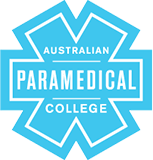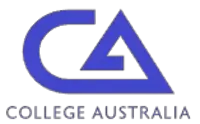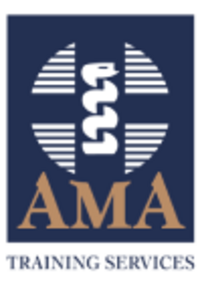
Allied Health courses in Ballarat
Course providers in Ballarat
The following providers offer Allied Health courses in Ballarat.















































Career Pathfinder
Skills shortages + AI Exposure
Discover in-demand careers and understand how each role may be impacted by AI and automation.
- See in-demand occupations across Australia
- Check AI Exposure ratings
- Compare training duration and average income
Common questions
Occupational therapists help patients perform tasks in daily life, while physiotherapists help patients improve their movement, strength and function. The term occupation refers to everyday life tasks, while physiotherapy refers to physical therapy. Both are science-based allied health roles that aim to improve quality of life through prevention, maintenance and treatment.
 Stephen Charlton
Stephen Charlton
You can become qualified to work as an occupational therapist by completing one of the following degrees, depending on your educational pathway:
- Master of Occupational Therapy (postgraduate degree)
Average duration: 24 months - Bachelor of Occupational Therapy (Honours)
Average duration: 4 years - Bachelor of Occupational Therapy
Average duration: 4 years
 Stephen Charlton
Stephen Charlton
You can become qualified to work as a physiotherapist by completing one of the following degrees, depending on your educational pathway:
- Doctor of Physiotherapy (postgraduate degree)
Average duration: 3 years - Master of Physiotherapy (postgraduate degree)
Average duration: 24 months - Bachelor of Physiotherapy (Honours)
Average duration: 4 years - Bachelor of Physiotherapy
Average duration: 4 years
 Stephen Charlton
Stephen Charlton
Yes, you need to complete an accredited degree to work legally as an occupational therapist or physiotherapist in Australia. The two core pathways are completing a bachelor’s degree or a postgraduate degree. The Occupational Therapy Council of Australia and Australian Physiotherapy Council are responsible for accrediting such courses.
 Stephen Charlton
Stephen Charlton
Yes, overseas-qualified practitioners can work in Australia by registering with the Occupational Therapy Board of Australia or Physiotherapy Board of Australia. Practitioners who are currently registered with the Occupational Therapy Board of New Zealand or Physiotherapy Board of New Zealand can apply directly for Australian registration. Other overseas-qualified practitioners have to fulfil the requirements listed on the relevant webpages of the Occupational Therapy Board of Australia and Physiotherapy Board of Australia.
 Stephen Charlton
Stephen Charlton
If you have already completed an approved degree in a different discipline, you can gain an accredited postgraduate degree to become qualified to work as an occupational therapist or physiotherapist. Examples of such degrees are a Master of Occupational Therapy, Master of Physiotherapy and Doctor of Physiotherapy. Postgraduate degrees in these fields may have additional entry requirements, including but not limited to health-related prerequisite subjects.
 Stephen Charlton
Stephen Charlton
In some cases, completing vocational education and training (VET) in a related discipline can allow you to meet the entry requirements for a bachelor’s degree in these fields. Entry requirements vary between educational providers. Some providers offer a VET entry pathway with a minimum of a Certificate IV, but others require a minimum of a diploma or advanced diploma. Some providers do not offer a VET pathway for these courses at all. Therefore, it’s wise to confirm the entry requirements for your desired bachelor’s degree before starting a VET course.
 Stephen Charlton
Stephen Charlton
In addition to completing an accredited degree, occupational therapists and physiotherapists will need to register with the Occupational Therapy Board of Australia or Physiotherapy Board of Australia to work in Australia. The Australian Health Practitioner Regulation Agency (AHPRA) administers practitioner registration on behalf of these boards. There are different requirements to gain registration for Australian-qualified practitioners, New Zealand-registered practitioners, and other overseas-qualified practitioners.
 Stephen Charlton
Stephen Charlton
Career paths for these professions include independent contracting, starting a practice, working in community care, paediatrics, mental health, rehabilitation, disability, medical or aged care sectors).
 Stephen Charlton
Stephen Charlton
Jobs and Skills Australia reports that the median full-time weekly earnings for occupational therapists and physiotherapists in 2024 are $1,526 and $1,710, respectively. These figures can be contrasted with Australian workers of all occupations, who earn a median full-time weekly income of $1,697.
 Stephen Charlton
Stephen Charlton
There is a significant demand for occupational therapists across Australia. Jobs and Skills Australia’s Occupation Shortage List indicates that the labour market had a shortage of occupational therapists across all states and territories from 2022 to 2024.
 Stephen Charlton
Stephen Charlton
There is substantial demand for physiotherapists in Australia. Jobs and Skills Australia’s Occupation Shortage List indicates that the labour market experienced a shortage of occupational therapists and physiotherapists in most states and territories from 2022 to 2024.
 Stephen Charlton
Stephen Charlton
Working as an occupational therapist or physiotherapist comes with the satisfaction of directly helping to improve patients’ quality of life. Furthermore, the job market is promising, as Jobs and Skills Australia reports there is significant labour market demand for both professions. The future outlook is also positive, as Jobs and Skills Australia reports that the annual employment growth in 2024 for occupational therapists and physiotherapists is 2,200 and 4,100, respectively.
 Stephen Charlton
Stephen Charlton
Further reading


What can you do with a Certificate IV in Allied Health Assistance (Physiotherapy)?
3rd March 2022
What can you do with a Certificate III in Allied Health Assistance?
8th January 2020All courses
- HLT33021 Certificate III in Allied Health Assistance
- HLT47321 Certificate IV in Health Administration
- CHC43315 Certificate IV in Mental Health
- CHC53315 Diploma of Mental Health
- HLT52021 Diploma of Remedial Massage
- HLT41120 Certificate IV in Health Care
- HLT54121 Diploma of Nursing
- CHCSS00138 Mental Health Assistance
- HLTWHS006 Manage Personal Stressors In The Work Environment
- Bachelor of Nursing
- HLT43015 Certificate IV in Allied Health Assistance (Physiotherapy, Occupational Therapy)
- Bachelor of Physiotherapy (Honours)
- HLT47715 Certificate IV in Medical Practice Assisting
- BSB42015 Certificate IV in Leadership and Management (Health Practice Managers)
- HLTINFCOV001 Comply with infection prevention and control policies and procedures
- Master of Social Work
- 11030NAT Course in Ear Wax Removal (Irrigation)
- HLTWHS003 Maintain Work Health and Safety
- Bachelor of Exercise and Sport Science
- 10974NAT Diploma of Clinical Hypnotherapy
- HLT43312 Certificate IV in Medical Practice Assisting
- HLTADM010 Facilitate a Coordinated Approach to Client Care
- Master of Sports Medicine
- HLT45015 Certificate IV in Dental Assisting (Radiography Specialisation)
- Bachelor of Physiotherapy
- Bachelor of Speech Pathology (Honours)
- BSB30120 Certificate III in Business (Medical Administration)
More about Allied Health courses
For individuals in Ballarat looking to embark on a rewarding career in healthcare, the range of Allied Health Courses available provides a solid foundation. Whether you are just starting out or are a seasoned professional, there are courses tailored to meet your educational needs. Beginners can consider the Certificate III in Allied Health Assistance or the Assist Clients with Medication Skill Set to gain essential skills and knowledge. These qualifications prepare you for various entry-level roles such as Allied Health Assistant or Patient Care Assistant, ensuring that you are equipped to support healthcare professionals in delivering quality care.
For those with prior experience or qualifications seeking to advance their careers, Ballarat offers a wealth of advanced courses designed to deepen your expertise. Pursuing a qualification like the Certificate IV in Mental Health or the Diploma of Remedial Massage can open doors to roles such as Mental Health Support Worker or Remedial Massage Therapist. With 28 advanced courses available in the region, learners can choose from a variety of subjects that cater to their professional aspirations, such as Bachelor of Nursing and Bachelor of Physiotherapy.
Additionally, higher education options such as the Bachelor of Occupational Therapy and the Master of Applied Psychology (Clinical Psychology) are available for those aiming to specialise further. Graduates from these programs can pursue impactful roles such as Occupational Therapist or Clinical Psychologist, contributing significantly to the well-being of the community in Ballarat and beyond. With access to esteemed training providers, current and aspiring health professionals are well-positioned to find meaningful careers in allied health.
By exploring the diverse Allied Health Courses in Ballarat, you can take proactive steps toward achieving your career goals. The city, known for its vibrant community and strong healthcare sector, provides an excellent backdrop for your education. With courses that meet various skill levels, from beginner skills in health assistance to advanced diplomas and degrees, every learner can find a pathway that suits their ambitions. Stay informed and elevate your career by selecting a course that aligns with your personal interests and professional goals.
